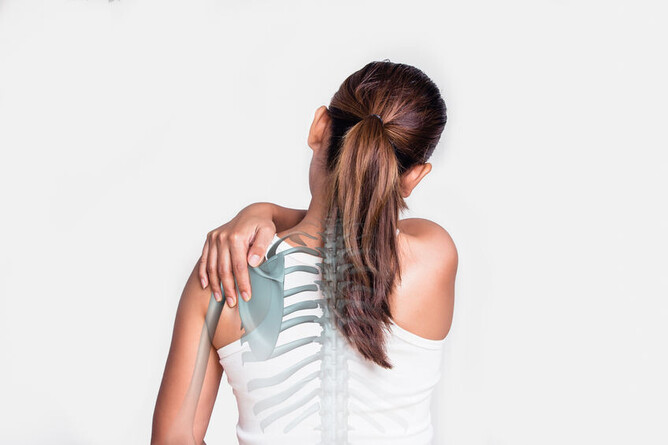Which is the best way to sleep and why?
This is a question we are often asked as Osteopaths! Choosing a pillow is really down to individual preferences, however some useful questions to think about include: Do you sleep on your side or your back? (Please note: sleeping on your front can strain your neck and affect the blood supply to your brain, if you sleep on your front, please talk with one of our osteopaths to get advice on how to sleep as if on your front but without the neck strain!).
We recommend people sleep on their side if possible, as it likely will reduce snoring, sleep apnoea and reflux, it also enables improved glymphatic system drainage from your head (which clears out Tau proteins). Recent research has shown sleeping on your side may reduce the likelihood of neurodegenerative changes in the brain.
When sleeping on your side you need to fill the space between your head and neck so your neck is in alignment with the rest of your spine. In order to achieve this, do you like to have a soft pillow that you can scrunch up for lying on your side and then flatten a bit for lying on your back? Or do you prefer a pillow which is already structured and doesn't move or change shape much? A more solid pillow can work well on your side but may be too big if you end up on your back and it can then push your head forwards which may strain your neck.
As a general rule, people with smaller thinner necks and/or who have had head injuries in the past, tend to like softer more mobile pillows, as the pillow will adapt to the shape of the head and neck and may provide the most comfortable sleep. Examples of soft pillows are down/ feather pillows and some polyester pillows. If you have a soft pillow that has, over time, become too soft, try putting it in an extra pillow case - this will slightly increase the firmness. Some people like to put their hand under their pillow to provide the right support for them. Another helpful tip is to place a folded towel under the pillow if it needs just a little more height or ‘oomph!
People with solid necks and heavier heads may benefit from pillows with firmer support to maintain proper spinal alignment and prevent neck strain. A firmer pillow can help prevent excessive sinking of the head and neck and this will help them feel more comfortable. A firmer pillow is likely to be made from latex or memory foam. If you can choose a natural product like latex it's better than a petroleum based product like memory foam which will 'off gas' for a while after opening the packaging. If you are particularly sensitive to smells or have respiratory issues, it's advisable to allow a bit more time for off-gassing and odor dissipation before sleeping with a memory foam pillow (this can take a few weeks). Additionally, ensuring good ventilation in the room can help speed up the process.
All pillows should be covered in a pillow protector under the pillow slip as pillow protectors provide a barrier against allergens, sweat, and dirt, helping to keep your pillows clean and fresh. This not only extends the life of your pillow but also promotes better sleep hygiene, especially if you have allergies or sensitivities.
Finally, if you are having trouble sleeping and you are not sure if it is your neck, back or pillow, then ask one of our osteopaths, as we can help you figure that out and advise you on sleep position, pillows and even mattresses. We can also gently treat your neck and/or back to help you sleep with comfort.
For more information and help, please see our Team page.
Collapsibility of the internal jugular veins in the lateral decubitus body position: A potential protective role of the cerebral venous outflow against neurodegeneration Link
Osteopathic Management of Non- specific Neck Pain Link
3. Effectiveness of osteopathic interventions in patients with non-specific neck pain: A systematic review and meta-analysis 2022 Link
Neck pain and Pillows Research 2009 Link
To find out more about the author Melanie Click Here





